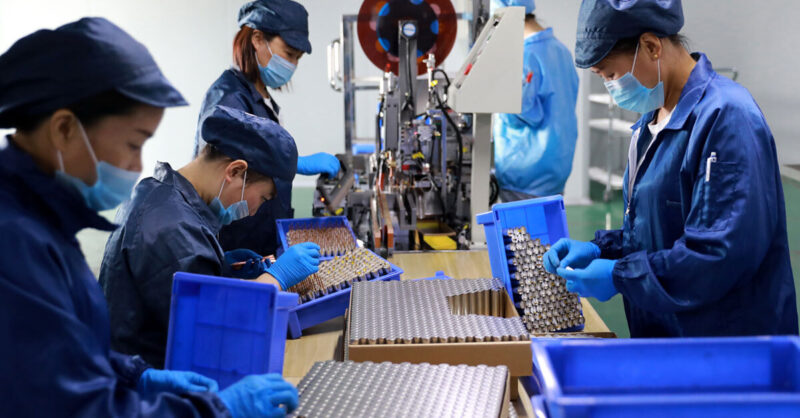Medical Equipment Powered by Lithium Batteries
With the advancements in technology, the medical industry has seen significant improvements in the quality and efficiency of medical equipment. One key factor driving these improvements is the use of lithium batteries as a power source. Lithium batteries have revolutionized the medical field by providing a reliable and portable energy solution for various medical devices. In this article, we will explore the benefits and applications of medical equipment powered by lithium batteries.
Lithium batteries have gained popularity in the medical field due to their high energy density, long life span, and lightweight nature. These batteries are commonly used in portable medical devices such as insulin pumps, portable oxygen concentrators, defibrillators, and electronic wheelchairs. The compact size and lightweight properties of lithium batteries make them ideal for use in these devices, allowing patients to lead a more mobile and independent lifestyle.
One of the significant advantages of lithium batteries is their ability to provide a stable power supply for medical equipment. These batteries offer a consistent and reliable source of energy, ensuring that medical devices function optimally without the risk of sudden power failure. This is crucial in critical situations where uninterrupted power supply is essential for patient care and safety.
Moreover, lithium batteries have an extended life span compared to traditional battery technologies. The longevity of lithium batteries reduces the need for frequent replacements, resulting in cost savings for healthcare providers and patients. It also minimizes the environmental impact associated with battery disposal, making lithium batteries a more sustainable choice for the medical industry.
The use of lithium batteries has also improved the user experience for both healthcare professionals and patients. For instance, electronic wheelchairs powered by lithium batteries offer enhanced maneuverability and longer operating time. This allows patients with limited mobility to move around more freely without the worry of running out of power during daily activities.
Lithium batteries have enabled the development of innovative medical devices that were previously unattainable. For example, wearable medical devices like continuous glucose monitors and smartwatches for heart rate monitoring are now possible due to the compact size and high energy density of lithium batteries. These devices provide real-time health information and enable patients to monitor their vital signs conveniently.

Despite the numerous benefits, there are some challenges associated with the use of lithium batteries in medical equipment. One concern is the risk of thermal runaway, which occurs when the battery overheats and reaches a critical temperature. However, manufacturers have implemented safety measures such as thermal management systems and advanced battery monitoring to mitigate this risk and ensure user safety.
The use of lithium batteries in medical equipment has revolutionized the healthcare industry. Their high energy density, long life span, and lightweight nature make them an ideal power source for various medical devices. From portable oxygen concentrators to electronic wheelchairs, lithium batteries have improved the quality of life for patients and provided healthcare professionals with reliable and efficient tools. With further advancements in battery technology, we can expect even more innovative medical devices powered by lithium batteries in the future.
-
 Introduction In today's highly connected world, communication plays a crucial role in bridging gaps and facilitating seamless connectivity. However, there are several areas where traditional communication infrastructure is limited, such as remote locations, disaster-stricken areas, or during power outages. To address this issue, lithium battery-powered communication base stations have emerged as a revolutionary solution to enhance connectivity in challenging environments....Læs mere
Introduction In today's highly connected world, communication plays a crucial role in bridging gaps and facilitating seamless connectivity. However, there are several areas where traditional communication infrastructure is limited, such as remote locations, disaster-stricken areas, or during power outages. To address this issue, lithium battery-powered communication base stations have emerged as a revolutionary solution to enhance connectivity in challenging environments....Læs mere -
 When it comes to exploring the great outdoors and embarking on exciting camping adventures, having a reliable and efficient power source is crucial. That's where the lithium camper battery comes into play. This innovative technology has revolutionized the way campers and outdoor enthusiasts power their adventures, offering numerous advantages over traditional batteries. One of the key features of a...Læs mere
When it comes to exploring the great outdoors and embarking on exciting camping adventures, having a reliable and efficient power source is crucial. That's where the lithium camper battery comes into play. This innovative technology has revolutionized the way campers and outdoor enthusiasts power their adventures, offering numerous advantages over traditional batteries. One of the key features of a...Læs mere -
 In today's fast-paced world, having a reliable and efficient 24V on-board battery charger for your vehicle is essential. Whether you own a truck, RV, or boat, ensuring that your battery is always powered up and ready to go is crucial for a seamless and hassle-free experience. In this article, we will explore the importance of having a reliable on-board battery...Læs mere
In today's fast-paced world, having a reliable and efficient 24V on-board battery charger for your vehicle is essential. Whether you own a truck, RV, or boat, ensuring that your battery is always powered up and ready to go is crucial for a seamless and hassle-free experience. In this article, we will explore the importance of having a reliable on-board battery...Læs mere -
 Introduction: In recent years, the world has witnessed a growing demand for electric vehicles as a means to reduce carbon emissions and combat climate change. Responding to this need, an innovative electric dirt bike powered by advanced lithium battery technology has emerged as a game-changer in the transportation industry. This article aims to explore the features and benefits of this...Læs mere
Introduction: In recent years, the world has witnessed a growing demand for electric vehicles as a means to reduce carbon emissions and combat climate change. Responding to this need, an innovative electric dirt bike powered by advanced lithium battery technology has emerged as a game-changer in the transportation industry. This article aims to explore the features and benefits of this...Læs mere -
 In recent years, the demand for energy storage has increased significantly as more people are turning to renewable energy sources like solar and wind power. The key to reliable and efficient energy storage lies in the development of high-performance batteries. Among the different types of batteries available in the market, lithium-ion batteries have emerged as the most promising technology for...Læs mere
In recent years, the demand for energy storage has increased significantly as more people are turning to renewable energy sources like solar and wind power. The key to reliable and efficient energy storage lies in the development of high-performance batteries. Among the different types of batteries available in the market, lithium-ion batteries have emerged as the most promising technology for...Læs mere -
 When it comes to powering your vehicle or equipment, having a reliable battery is crucial. Whether you need to start your engine, power your electronics, or run your appliances, the right battery can make all the difference. That why we excited to introduce our new Lithium 12V Starter Battery – a powerful and dependable solution for all your power needs....Læs mere
When it comes to powering your vehicle or equipment, having a reliable battery is crucial. Whether you need to start your engine, power your electronics, or run your appliances, the right battery can make all the difference. That why we excited to introduce our new Lithium 12V Starter Battery – a powerful and dependable solution for all your power needs....Læs mere -
 Introduction: The energy landscape is rapidly evolving, with the demand for electricity constantly increasing. In recent years, there has been a strong push towards the development of smart grids, which utilize advanced technologies to optimize the generation, distribution, and consumption of electricity. Among the key technologies that are revolutionizing smart grids is lithium battery technology. This article explores the significance...Læs mere
Introduction: The energy landscape is rapidly evolving, with the demand for electricity constantly increasing. In recent years, there has been a strong push towards the development of smart grids, which utilize advanced technologies to optimize the generation, distribution, and consumption of electricity. Among the key technologies that are revolutionizing smart grids is lithium battery technology. This article explores the significance...Læs mere

